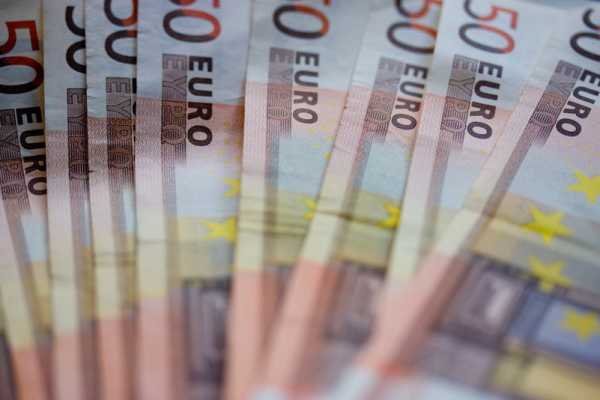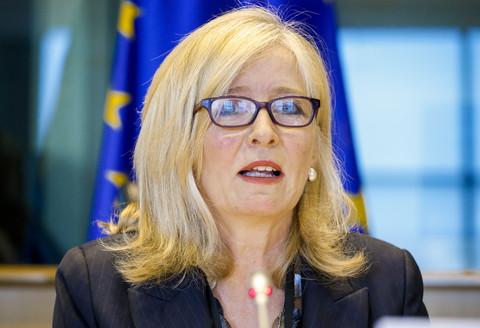
One of the most striking features of this scandal is the fact that it was the Belgian police — working on this case for months — who spotted what was arguably hiding in plain sight (Photo: snorski)
What happens when a weak anti-corruption system meets a strong desire to corrupt?
The answer was obvious once the general shape of the European Parliament scandal became clear—that a Gulf state has apparently bank-rolled a web of corruption and bribery in the EU’s only directly-elected institution.
-

Emily O'Reilly: 'The fundamental problem is that the parliament is self-policing' (Photo: European Ombudsman)
The revelations have led to predictable expressions of shock and horror and rapid attempts to shore up the gaps in the parliament’s weak anti-corruption architecture.
One of the many striking features of this very striking scandal is the fact that it was the Belgian police — working on this case for months according to themselves — who spotted what was arguably hiding in plain sight. The great gift of hindsight is now putting two and two together.
In fairness to parliament, it is now, even if belatedly, acknowledging the porous nature of its anti-corruption system.
Exposed to the glaring sun of global scrutiny, proposals are now coming in thick and fast as to how to ensure the transparency and accountability of the work of MEPs, the vast majority of whom do indeed work ethically and with the public interest at heart.
Previous attempts at reform have been met by internal inertia, and often with the justification that MEPs’ freedom of electoral mandate must not be undermined.
This highly corrosive scandal has—or must—sweep those barriers aside.
Self-policing
The fundamental problem is that the parliament is self-policing. When rules are not followed, there are few, if any, consequences.
The code of conduct for MEPs, for example, is monitored by a committee of MEPs with limited powers and the ultimate decision on whether or not to act rests with the parliament’s president.
MEPs are allowed to have second jobs, which leads to a risk of conflicts of interest.
There are no rules on jobs for MEPs post-mandate and there is no requirement to register and make public their meetings with representatives from foreign countries.
At the very least, all of these rules must be tightened and it is unequivocally possible to do so while also allowing MEPs to carry out their political mandate and serve the public interest.
Whether a tightened ethics system would have prevented the apparent bribery — involving suitcases of cash — that took place in this instance is debatable.
What is certain however is that lax rules lead to a slow decay in standards, including what might be called moral corruption, beginning with undeclared meetings with lobbyists and the turning of a blind eye to conflicts of interest.
Sign up for EUobserver’s daily newsletter
All the stories we publish, sent at 7.30 AM.
By signing up, you agree to our Terms of Use and Privacy Policy.
When the baseline ethics of an institution are not particularly clear or enforced, then those who work for it are at a much higher risk of acting in a way that either is , or appears to be, unethical.
The capacity of those who knew about or who suspected what was going on also needs to be considered. The job contracts of many of those working for MEPs can be precarious and that too presents a risk.
There may have been people who wanted to sound the alarm but felt they would not be sufficiently protected. Making this call if your job, or even the possibility to work in the parliament ever again, is at stake is much harder.
But even though it is parliament that is in the crosshairs of the police, media, and indeed the general public, this scandal also puts the spotlight on every EU institution, given that most people fail to separate one from the other and that, in any event, lobbyists target all of them.
The EU must do a lot more to fully acknowledge the consequences of the global power it yields. Attempts to corrupt it are not only inevitable but also logical. The EU in turn must recognise this logic and do everything it can to stop corruption.
While this scandal is particularly egregious, the lobbying playbook has remained largely unchanged over the years with lobbyists doing whatever it takes to exercise influence through a network of informal and formal contacts, at both the political and expert levels, and throughout the entire decision-making process.
This influence includes national ministers and ambassadors who wield a lot of power in EU decision making, but who are subject to virtually no scrutiny.
In my work as EU Ombudsman, I regularly draw attention to the need to be vigilant about this web of influence, by enforcing rules on revolving doors and on meetings with lobbyists, and by regulating conflicts of interests.
As ever, and unfortunately, it takes a scandal to drive those messages home.
European Parliament president Roberta Metsola pledged to leave no stone unturned in dealing with the scandal.
The greatest service the parliament could do for itself, for its reputation, and to restore the damaged trust among the public, is to live up to this promise by taking strong, concrete, and lasting action. Other institutions should also take note and avoid the temptation to think it has nothing to do with them.
Source: euobserver.com



